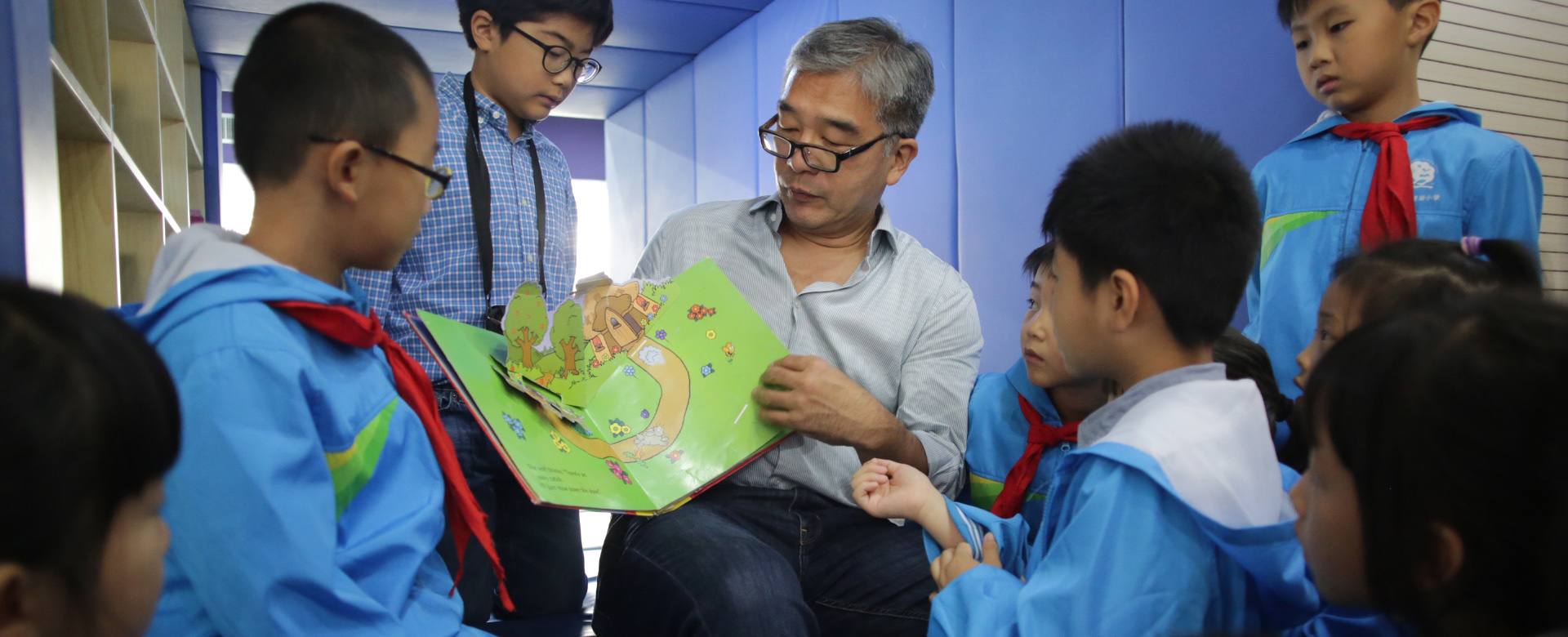Changing the World: One Word At A Time
23 April 2022
Today marks UNESCO World Book Day, an annual celebration that takes place all over the world on April 23rd and recognises the innate power of reading. It highlights how books form a bridge between cultures and generations, improve our wellbeing and, crucially, support learning and development for individuals and their communities.
Storytelling has always been an effective tool when it comes to educating younger generations. Books act as a vehicle to access and promote science, culture, and information. They improve our vocabulary, strengthen our memories and widen our general knowledge. Ohio State University found that young children whose parents read them one book a day will hear 290,000 more words by the age of 5 than those who are not regularly read to.
Nevertheless, whilst many of us may take reading for granted, millions of people around the world cannot afford or otherwise lack access to books.
The consequences are staggering. According to Save the Children, 393 million children cannot read or write. This number will continue to increase as 6 million children turn 10 each month without the literacy skills they should have at that age. Coronavirus has undoubtedly exacerbated the problem,with 1.6 billion children and youth forced out of school in April 2020, lowering the quality and quantity of their education. War and unrest also contribute to the problem. Recently in Afghanistan, all female students above the sixth grade were ordered to stop attending school altogether.
With a lofty goal set by the United Nations to ensure that all youth and a substantial proportion of adults achieve literacy by 2030, significant developments need to take place over the coming years.
Occasions like UNESCO World Book Day that encourage us to celebrate the value of literature, are a reminder that stories are part of the solution. Events around reading offer a great opportunity to engage children in the world of literature who may not be active or frequent readers. The day alone inspires a positive impact by activating imaginations, whether that be from reading itself or through corresponding activities such as dressing up as a favourite character. It stresses the benefits of reading from reduced stress to increased empathy. It sparks our creativity and leads to the love of learning that education development strategies must capitalise on.
I have always considered literature to be one of life’s greatest gifts. It fascinates me how the simple act of reading can influence the way humans interact with one another and themselves. I founded Bring Me A Book in Hong Kong with a mission to ensure that every child is read to, in order to strengthen family and community bonds, and create the love of literature I have gained from reading.
I’m proud to share that Bring Me A Book Hong Kong has now installed over 482 bookcases and has provided over 180,000 children with easy access to quality books. Over 30,000 parents and educators have participated in its reading aloud training programmes, and thousands of volunteers have donated their time and skills to deepen its impact in the community.
What I hope Bring Me A Book exemplifies is the domino effect of philanthropy. Philanthropy offers a ripe opportunity to take a simple issue of accessibility and affordability and eliminate them, such as in the case of books. Yet, it has an extensive impact upon the development of individuals and communities. One of the organisations Bring Me A Book Hong Kong works with is ELCHK Login Club For New Arrivals. After sharing books with more than 80 less privileged children, ELCHK noticed a marked difference in reading habits and an enjoyment of learning English. All it took was being able to open a book.
Returning to the Sustainable Development Goals; we must also pay attention to the intersection of education with issues such as poverty and gender equality. Access to education is the route to future progress, translating into improved health and livelihoods, social stability and long-term economic growth. Global Partnerships project that 420 million people would be lifted out of poverty with a secondary education, and that one additional year of school can increase a woman’s earnings by up to 20%. Most astounding, it estimates that a child whose mother can read is 50% more likely to live past the age of 5.
Improving education is clearly a primary pillar in achieving the SDGs, and literacy is an integral step in the process.
I encourage us all to mark this UNESCO World Book Day by opening a book of our own and, if we can, helping someone else to do the same. Who knows what difference you could make.

